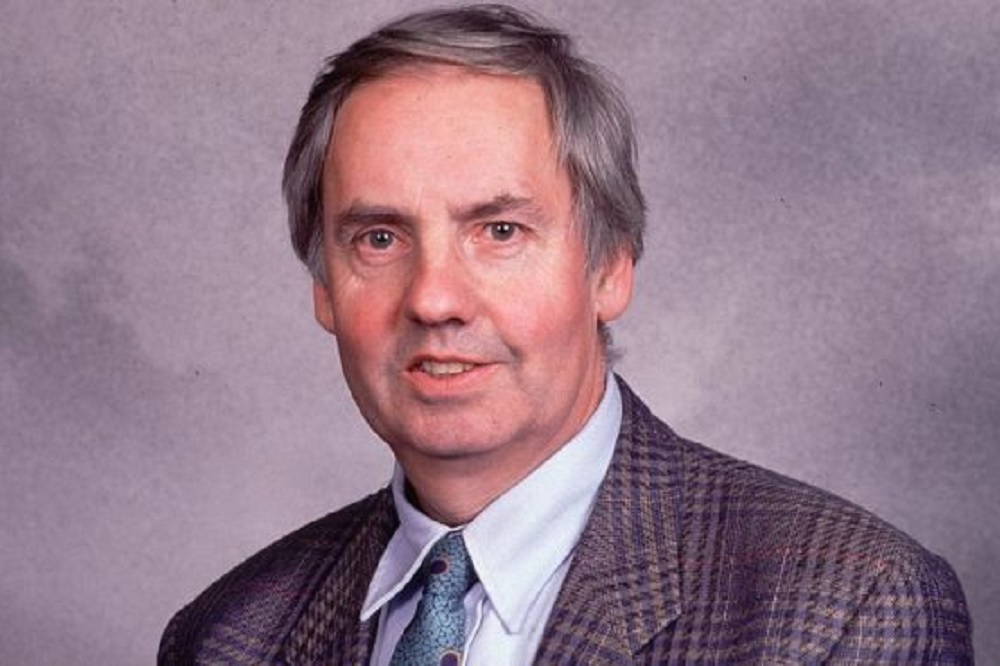‘He was absolutely brilliant’: Remembering the genius of Denzil Davies

Theo Davies-Lewis
A year after his death, Theo Davies-Lewis pays tribute to Denzil Davies, the enigmatic man who was Llanelli’s MP for 35 years.
When David John Denzil Davies was growing up in the small village of Cynwyl Elfed, few would have predicted how he would rise meteorically in British politics in the second half of the twentieth century.
David John, known as Denzil throughout his life, had an intellect that was unmatched by his Labour Party colleagues and political opponents. His death, which was announced in this week in 2018, unsurprisingly sparked widespread tributes from those that knew him. Notable obituaries were published in many of Britain’s national newspapers; this was perhaps unusual for a man who had never held a senior Cabinet position and had not been an MP since 2005.
As a Llanelli boy, I had heard stories of Denzil Davies: the great intellectual, a skilled barrister, and an effective MP.
He was also my MP. But I was born a few months after Tony Blair’s landslide in 1997, towards the end of Denzil’s political career. My late grandparents, Raymond and Meriel Lewis, who were florists in the town, told me how lucky we were to have Denzil as our representative in Westminster.
A year after his death, I felt compelled to revisit Denzil’s life and career. He was perhaps – among many others – one of our greatest MPs that never held a great office of state or become Prime Minister. He certainly was ambitious and able enough to do so.
Raised as a native Welsh speaker, Denzil attended Queen Elizabeth Grammar School, Carmarthen, and then went to study Jurisprudence at Pembroke College, Oxford, in 1959. At Oxford, he was remembered fondly by contemporaries. It was here he displayed his exceptional academic skill, achieving a First Class Honours upon graduating in 1962. He was so brilliant that the wise dons reportedly stood up and applauded him during his exam.
A distinguished career in law naturally preceded his political life, which began when he was elected Llanelli’s MP in 1970, succeeding the great Jim Griffiths. Denzil’s career from this point onwards is relatively well-documented: it is a story of public service.
His friends and colleagues remember him fondly as a man who stormed up the greasy pole to become parliamentary private secretary to the Welsh secretary in 1974, Minister of State at the Treasury from 1975 and a Privy Counsellor in 1978; in the following decade of Thatcherism he was a prominent Shadow Cabinet Member too. He was, however, not the only Welshman making his way in politics.
Michael Howard told me that Denzil was an “absolutely brilliant” man who he got to knew in the 1980s. As a fellow Llanelli boy who ended up on the other side of the political divide, it must have been exciting to be a fly on the wall in their political discussions.
“Funnily enough when you have friendships across the political divide, which are much more common than people realise, you tend not to talk about politics,” the former Conservative leader told me.
Instead, they talked about Llanelli. And Denzil showed his kindness when he told the former Tory leader that when every Labour politician came to Llanelli to make their speech, he would tell them that they were not to criticise Howard: “This wasn’t because of me but because my mother was very popular in Llanelli!”
Distinguished
As Howard made his way up the ranks of the Conservative Party, Denzil notoriously fell-out with the Labour leader and fellow Welshman, Neil Kinnock. He resigned famously one evening in 1988 over policy disagreements.
This event – which Kinnock told me was “beyond explanation”– took Denzil to the backbenches and away from frontline politics.
Despite being a “real loss” to the front bench, Kinnock does not dwell on this moment in Denzil’s career: “He was a bright man, and applied his brilliance to analysis and argument. He was good on the platform, in the House of Commons, and was a dedicated Member of Parliament”.
The years after Denzil’s resignation seem to be a period of continued public service but also intellectual expression. After retirement from the Commons, he even wrote a book harking back to his classical education. The Gallilean and the Goose is a riveting insight into how the Romans adopted Christianity.
John Mair, a friend of four decades, told me how Denzil would come back to Oxford to enjoy the dreaming spires, the place where he could “stretch his brain”.
“You could always have a good time with Denzil. You could sit down and you’d talk and he’d listen to you.
“He was proud of his Welshness, he knew what he thought, but he was also very gentle. He was a wonderful man.”
These are the many ways we should remember Denzil Davies: the man with a blistering Barrister’s wit; the distinguished parliamentarian and minister; but also the author of compelling texts.
Sir Richard Parker, the distinguished civil servant who spoke at Denzil’s funeral, told me how he’d remember his friend: “Welsh-speaking Wales is a small place in terms of numbers of people”, he said, “but they should be proud they had someone of that ability who was so devoted to their interests”.
I certainly feel proud to have been one of those young constituents.
Theo Davies-Lewis is an Associate at Finsbury Communications
Support our Nation today
For the price of a cup of coffee a month you can help us create an independent, not-for-profit, national news service for the people of Wales, by the people of Wales.







Opposed Devolution, opposed EU membership as I recall.
“enigmatic”
perfectly reasoned, entirely consistent, but adrift from the political world, was always my impression
… and there were / are others that have a similar disposition